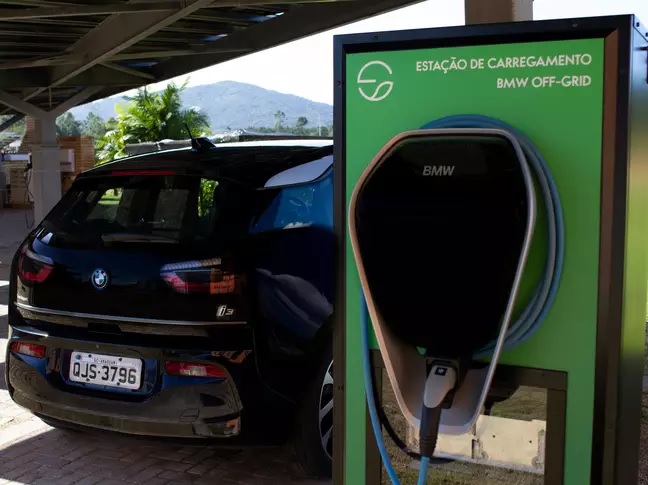RIO DE JANEIRO, BRAZIL – The project aims to make electric car battery recycling a reality in Brazil within a few years. On March 24, BMW announced a partnership with Tupy and Senai Paraná to develop a more sustainable process that ensures the recovery of chemical compounds from the end-of-life batteries of electric vehicles in Brazil. The project will last 24 months and will have an investment of R$3.4 million (US$710,000).
Each party will bring specific knowledge to the studies within its area of expertise. Within the Tupy Tech front, Tupy has dedicated its expertise in materials, metallurgy, and processing of complex geometries to developing technologies that contribute to the customers’ decarbonization journey.
This project aims to develop battery recycling by hydrometallurgy, a more sustainable process than the traditional pyrometallurgy, most commonly used today. The technology involves less greenhouse gas emissions and less need to extract minerals by conventional mining methods.

Senai Paraná will be the executor of the research project and responsible for the activities and respective delivery of the research results, which will be carried out at the Senai Institute for Innovation in Electrochemistry (ISI-EQ), in Curitiba (Paraná State). BMW Group Brasil will supply the technical know-how and the batteries of the BMW i3 electric vehicle to develop the recycling process by hydrometallurgy.
The project opens a new route for using recycled minerals in the manufacture of new batteries, which will significantly reduce the dependence on primary mineral raw materials. With a duration of 24 months, the intention is that the first results will be evaluated this year. The objective is the resynthesis of the active cathode material of a battery with 100% recycled material. Parameters will be obtained for the efficiency of the entire process, the purity of the recycled materials, the economic index, and the environmental index.
“We are developing several studies and projects for the second use of the battery for electric vehicles, such as developing a recharging station for electric vehicles disconnected from the power grid. This new partnership with Tupy and Senai is a step forward because, in the future, it may enable the production of new batteries with reduced extraction of raw materials from the environment,” says Vivaldo Chaves, Director of Sustainability and Infrastructure of the BMW Group Brazil.

